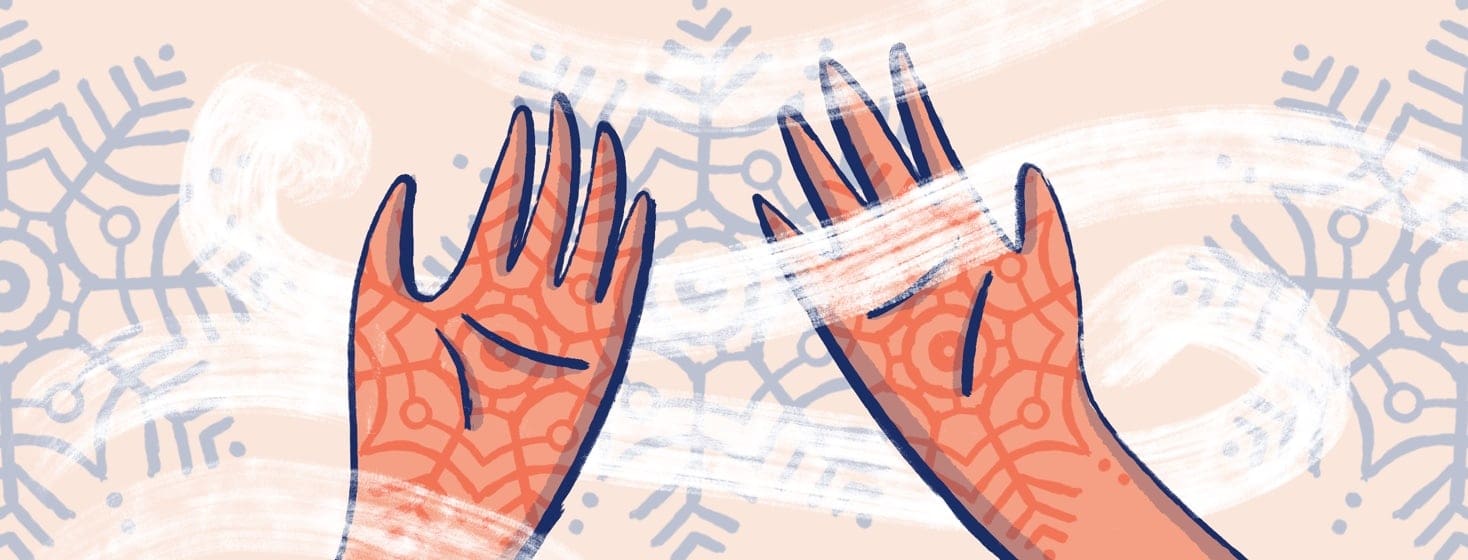Surviving Psoriasis Throughout The Winter Months
The days have gotten shorter and the weather has gotten colder. We are inside our comfortable homes feeling pleasantly warm. This may sound like a winter wonderland but when our sensitive psoriasis skin is exposed to winter weather, it can have a variety of bad effects.
There is an increased risk of colds and fatigue during the icy temperatures. This can be a real challenge for us suffering from psoriasis.
Coping through the cold winter with psoriasis
The cold and winter months usually worsen the symptoms of psoriasis due to the lack of sun and ultraviolet radiation. This is often used in the treatment of the disease. The air is very dry and can take moisture out of our skin.
That’s the reason why so many patients are in the dermatology office during the cold season. We start having flares.
Psoriasis winter symptoms
As symptoms get worse, so does the quality of life. This means that we should listen to our skin and adjust our treatment. The winter weather can be cruel to our bodies. Even people who don’t have skin issues get dry itchy skin in the cold months and want to scratch.
Everyone in my psoriasis tribe seems to have an infection this winter. I am on my 3rd one and winter is just getting started. Staphylococcus is a germ that lives on our skin; so we must be extra careful when our skin is cracked and open. We also get more colds and flu in the winter. It's important to take extra precautions when deciding to interact with people who are sick. Keep plenty of tissues handy and wash your hands often.
Skincare routines for the cold winter
The lack of moisture in the cold winter air dries out the natural oils in the skin which causes dehydration. As the skin becomes particularly dry in the winter months, daily skincare becomes extremely important for alleviating the symptoms.
Moisturizing and nourishing baths, regular application of creams, oils, ointments or lotions based on natural ingredients can do well enough to preserve the hydration of the skin. Apply moisturizers often; especially on the hands, face, and lips.
Winter clothing options for psoriasis
I loved wool, but my skin hates it. In addition to the regular rich and protective skincare, we need to wear the right choice of clothing. Your favorite cuddly, warm winter clothing should consist of breathable and functional materials so that no heat accumulation occurs and the skin is not dried and irritated.
Constrict and synthetic clothing such as wool should be avoided and instead replaced with loose, comfortable, cotton clothing to prevent skin irritation. It is best to wear layers of cotton clothing if you have too.
Exercising in the winter
Some say that regular physical activity and fitness can contribute to well-being. Stretching exercising is especially recommended during the winter and it always does the body a huge service. Relaxation techniques like autogenic training or yoga can help in finding the right balance between mental and physical health.
Relieve winter stress. Avoid psoriasis flares.
I know that my symptoms worsen during the holiday season and the main reason for that is the increased stress and anxiety that I get. Unfortunately, like many other diseases, stress is known to be a catalyst for psoriasis.
Let’s all try to avoid unnecessary stress in the cold season and pay attention to our mental and physical well-being. In concrete terms, this means avoiding stress in your professional and private life and listening to your own body.
Take extra care during the winter months
As much as indoor heating keeps us warm, it also severely dries up the air. The results are dry and irritated skin. To solve this problem, use a humidifier that effectively regulates the moisture in the room. Not all of us suffer in the winter; there are people who suffer in the summer and winter brings them relief.
If you notice a severe worsening of the symptoms, consult your dermatologist for additional advice and perhaps a different treatment. With a little extra care, we will survive these winter months together.

Join the conversation